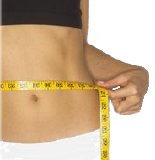
A
new analysis of bariatric surgery patients, published in the journal Nature, reveals that this surgical procedure may be far more dangerous than most people believe. An astonishing 4.6 percent of patients who undergo bariatric surgery are dead within a year. That's almost one out of 20 people who die within a year following the surgery. That's a huge number, and it indicates the level of risk associated with bariatric surgery. With the number of bariatric surgeries performed each year in this country approaching 50,000, we're talking about several thousand people dying each year from this procedure.
Most surgeries are medically unjustified
I have no doubt that in the years and decades ahead, historians will look back on this present-day practice of surgically removing parts of people's digestive tracts, and they will characterize this as barbaric and medically unjustified. They will look back and wonder why surgeons would remove entire sections of people's digestive tracts in an effort to help them lose weight. Of course, part of the answer is because these surgeons are in business to make money, and they make money by performing surgeries, regardless of whether or not those surgeries are actually safe or effective. For example, 60 percent of heart bypass surgeries performed in the United States are completely unnecessary. There's no medical justification whatsoever. However, they are huge profit centers for surgeons, hospitals and even anesthesiologists. Everyone makes a buck when people have heart bypass surgery, but is the patient truly helped by it?
More often than not, the patient isn't helped. In fact, they are harmed by it. The same thing happens with bariatric surgery, except in some ways it's even worse. You can't really grow back the stomach after a surgeon has cut half of it out. You can never fully recover from bariatric surgery. It is a permanent removal of vital organs and tissues that belong there. These are organs that you are supposed to have to be a healthy human being.
Fraudulent marketing schemes fool people into getting bariatric surgery
I strongly object to the kind of marketing being done to promote bariatric surgery. In the marketing materials for this procedure, there are always pictures of really thin people who have never actually undergone the procedure. There is a lot of verbiage that exaggerates the benefits of the procedure and minimizes the risks, if they are even mentioned. For example, most bariatric surgery patients are never informed that one of the most common side effects of the surgery is hypoglycemia or a form of hyperinsulinemia, which is an insulin reaction to the ingestion of food. This is now recognized as a common side effect of bariatric surgery or gastric bypass surgery. When this happens to you, you're put in a very difficult spot as the patient because the thing that's typically suggested to you to solve this problem of your pancreas producing "too much insulin" is to surgically remove part of your pancreas.
How's that for brilliant? The surgeons harm your body with the first surgery, and then they create a condition where they get repeat business because they have to remove part of your pancreas to balance your blood sugar. If this is the approach to healing in this country, I'd hate to see what these people would actually do if they were trying to harm someone.
I don't think that's the way nature intended the human body to achieve a perfect state of health. It's not about figuring out how many organs or tissues you can remove. It is supposed to be about supporting the organs and tissues that are already there and helping them regain their strength and vitality. These surgeries accomplish none of that.
Getting back to the marketing of bariatric surgery, this procedure is frequently marketed to people using fraudulent means, because the real risks are never really communicated to patients. The difficulty of undergoing this procedure and recovering from it is never quite fully explained.
Healthy alternatives to bariatric surgery
All this makes you wonder what kind of person would undergo bariatric surgery. Obviously, they feel like they've run out of options. Maybe they have tried all kinds of diets, but they're still eating enormous amounts of food. I guarantee you there are a couple of things they've never tried. One solution they've never tried is eating foods of high nutritional density. This means getting all the necessary minerals into the diet, because one of the reasons we keep craving and overeating is that we are de-mineralized. Our soils no longer contain trace minerals or even the macro minerals that the human body was designed to consume, so our fresh produce (fruits, vegetables, etc.) lacks these minerals. And when it comes to factory foods, nearly all of the food products on grocery store shelves is completely devoid of all but a few minerals.
Did you know that white flour has 90 percent less mineral content than whole grain wheat? You lose almost 100 percent of minerals like magnesium, zinc and calcium when you process these grains. When you live on the processed food diet, you're hungry all the time because your body says, "Keep on eating until I get the right minerals." So, you just keep eating and eating until you become obese. No matter what diet you try, you can't get any thinner because your body still isn't getting the minerals it needs.
If you really want to lose weight, one of the first things you've got to do is start eating organic fruits and vegetables. You must get away from processed foods. Ideally, you need to start taking supplements with minerals and trace minerals. That's a great combination to calm your cravings.
The other thing that I guarantee most people haven't tried in terms of losing weight is avoiding all of the chemicals added to foods to make you hungry. These chemicals are called excitotoxins. The most common one is monosodium glutamate, or MSG. This ingredient is hidden in lots of other food ingredients such as yeast extract, hydrolyzed vegetable protein, autolyzed vegetable protein and so on. This chemical interferes with the normal healthy function of your endocrine system. That's the system that regulates appetite in your body. When this system isn't functioning correctly, your body never knows when you've eaten enough, so it never turns off your appetite and you continue to eat and eat and eat. Weight loss can be achieved quite easily through the re-mineralization of your body. Key factors include diet and supplementation, exposure to natural sunlight -- which is a natural appetite suppressant -- and the avoidance of all metabolic disrupters. Metabolic disruptors are ingredients in the food supply. I reveal them all in the book Grocery Warning, where I talk about them in great detail. The main ones to avoid are the excitotoxins, which include monosodium glutamate, yeast extract and other variations of this chemical. If you do that, you don't need bariatric surgery. You'll lose weight as a side effect of making healthy food choices.
Now, a few people will say, "I don't want to give up my nacho chips; they have MSG, but I don' t want to give those up. I don't want to give up eating my canned soup." It's always a choice for each and every person. If you choose that route, and you get super obese, you may end up needing bariatric surgery, because nothing else is going to lose weight for you, and guess what? When you have bariatric surgery, you won't be able to eat those Doritos, canned soups and all those other excitotoxins anyway. Plus, half of your digestive tract will be gone, ripped out of your body. You'll have internal scar tissue, and you may have pain for the rest of your life. You may have hypoglycemia that might require surgery to remove part of your pancreas. Statistics show you might have a 4.6 percent chance of being dead within one year after undergoing bariatric surgery. So, if having your nacho chips, canned soup and MSG-tainted salad dressing is really that important to you, it's your choice.
MSG is present in most processed meats, including bacon, breakfast sausage, beef jerky and pepperoni. Almost all of these contain MSG, but you can read food labels to find out which ones do and which ones don't. Some people are so unwilling to change their diet that they simply refuse to stop eating these dangerous foods. In fact, they opt to undergo surgery instead. That's a choice I do not understand. I honestly believe that most people are only making that choice because they have never been given access to true information about foods, healing, weight loss and nutrition, which could save them from obesity, bariatric surgery, and a painful death.
Avoid dangerous surgeries to obtain ideal health
People are intentionally misinformed about health by the medical industry, drug companies and the FDA, all of which want to limit the treatment of disease to drugs, surgery, chemotherapy and other conventional therapies. If patients just had access to good information, they'd make better choices, and far fewer patients would undergo gastric bypass surgery in the first place. Of course, that's exactly what the surgeons in this country don't want to happen. They want to see more people opting for surgery, because that means more money in their pockets. Hospitals and clinics want the same thing. Disease = revenue. Education = loss of revenue. In this way, conventional medicine is clearly against patient education about disease prevention. The only "education" provided by conventional medicine is based on claims for a new drug or surgical procedure.
But things are different here on NewsTarget.com. I want you to be a healthy, thin, fit person at your ideal bodyweight. I want you to avoid dangerous surgical procedures. I don't want you to die within a year or live the rest of your life obese, in a state of chronic pain and addicted to prescription drugs or under the care of a surgeon who thinks of you as merely another source of revenue. I want you to be free to make your own choices about the future of your health and free to experience all the wonderful lessons that go hand-in-hand with that kind of healing journey. I believ






